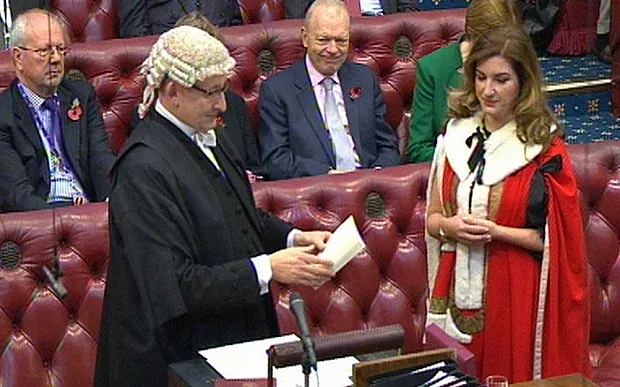West Ham’s Vice Chairman, Karren Brady, has seemingly reversed her stance on the ‘football regulator’, expressing support for David Kogan’s appointment in her column for The Sun.
Back in November, Baroness Brady, a member of the House of Lords, warned peers about the “dangers lurking in this (football governance) bill” as she worked to obstruct it.
She remarked, “This legislation could stifle the unique aspirations that allow clubs to thrive in our pyramid system, and fulfill the dreams of fans.”
The Conservative peer later criticized proposed “extreme redistribution,” suggesting it would “replace our effective meritocracy with a closed environment, where mere survival becomes the limit rather than ambition.”
The Government eventually dismissed Brady’s request to release a letter from UEFA warning that domestic clubs and the national team might face bans from the Champions League and Euros due to the new regulator’s interference.
Brady’s Change of Heart in The Sun:
Now, nearly a year later, her views appear to have shifted:
“I understand that football governance might not excite everyone, but this upcoming appointment is set to influence the game’s future for decades.”
While I have previously questioned the necessity of an Independent Football Regulator (IFR), it’s essential that we approach it correctly, as it is unavoidable.
David Kogan’s extensive experience in media rights and sponsorships is invaluable to modern football, giving him insight into its financial sustainability and operational challenges.
Kogan’s experience encompasses work with the EFL, UEFA, women’s football, and international bodies, making him well-versed in the entire football pyramid and its interconnectedness.
His leadership should prioritize creating transparent and accountable governance structures that protect clubs. Although he is not a traditional regulator, this perspective can be beneficial.
Appointing Kogan—who has been questioned for political donations—must not hinder public service. His appointment still awaits confirmation from the Commissioner for Public Appointments, a delay that remains unexplained.
The Football Governance Act provides the regulator with practical authority to avert situations like the financial crises seen at clubs such as Sheffield Wednesday, highlighting the need for effective oversight.
Kogan’s team has already engaged with clubs, including West Ham, to explore avenues for better regulation. Premier League clubs will embrace a regulator if it genuinely enhances ownership standards, boosts fan involvement, safeguards club heritage, and prevents detrimental breakaway leagues.
Kogan’s primary focus should be on sustaining clubs, reflecting their role as community-oriented entities rather than profit-centered businesses, especially since most clubs operate on limited revenues.
Ultimately, the regulator’s key task is to consult with those who have cultivated the Premier League into a global phenomenon. Ignoring such experience could result in substantial harm.
Football transcends mere business—it embodies history, identity, and pride for millions of fans.



